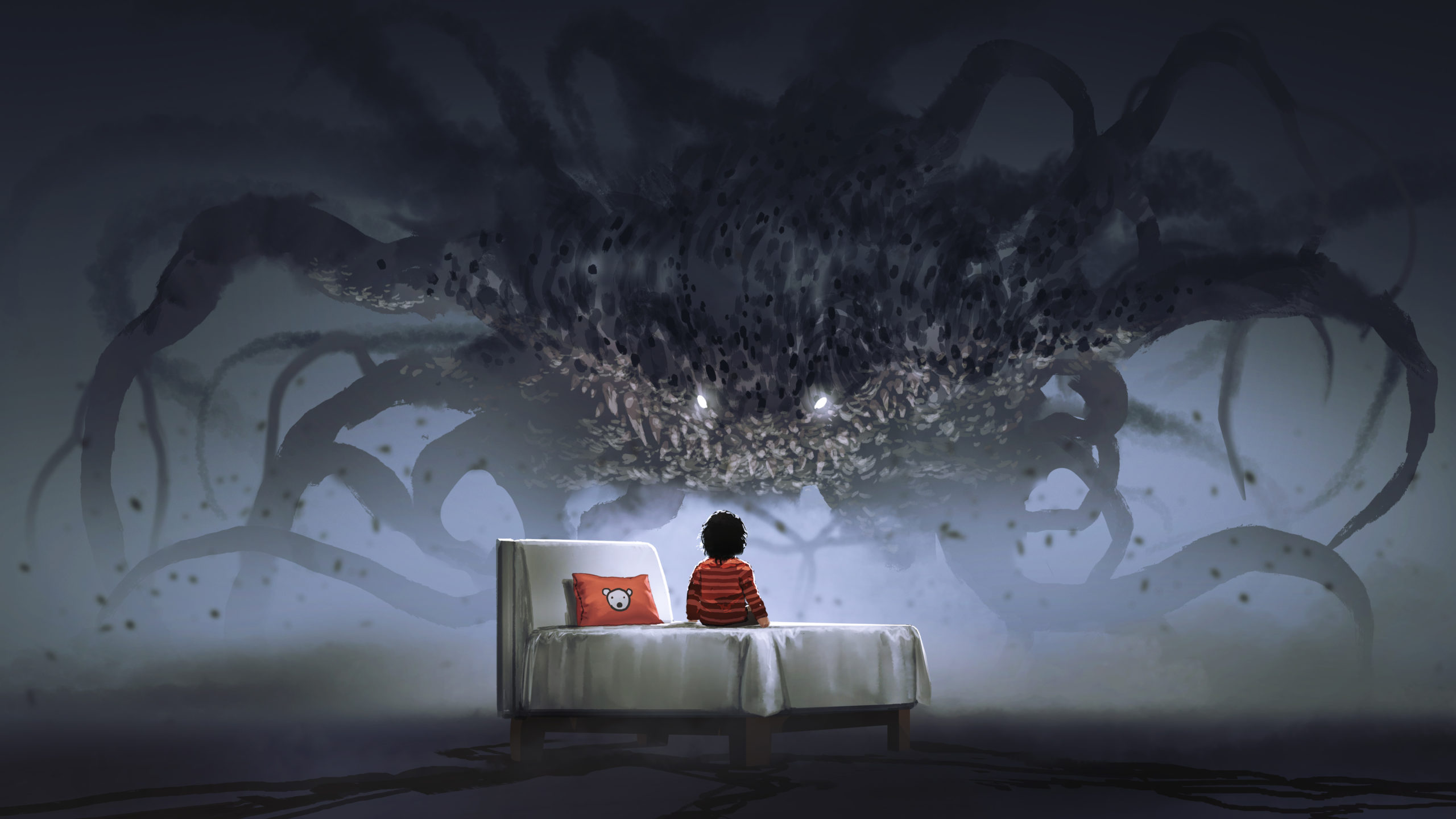Does your child have anxieties about the dark? Here are 6 tips for how to help them overcome their fear and sleep peacefully.
Nighttime fears (along with other anxieties) typically start to show up when a child’s around 2 years old. At this age, toddlers start developing language comprehension skills and imagination, so it’s common for them to start being afraid of the dark and worried about what might be lurking in their room at night. And this can lead to your toddler leaving their room in the middle of the night, looking to climb into bed with mom and dad.
On one hand, you want to comfort your child when they’re scared, but you also don’t want to give them the idea that there’s anything to be afraid of. Finding the balance is helpful for restoring your little one’s positive attitude about bedtime and getting them sleeping peacefully through the night again.
Here are 6 tips for helping your child overcome their fear of the dark:
1. Identify their concerns
Ask your child what they’re afraid of and listen to what they have to say. Ask open-ended questions to get your child’s true thoughts. If you’ve got a young toddler, you likely already know that they don’t always give clear answers so you may have to work with limited information. But even just the fact that you’re showing concern can go a long way.
Accept your child’s emotion by showing empathy and understanding. This lets them know that you’re taking them seriously and that their feelings are ok. Again, be cautious that you’re validating their emotion, not the thing that they’re afraid of. We don’t want to imply that there could actually be a monster in their closet.
Help your child think realistically about their specific fear. Ask your child some questions to help them see the situation in a more realistic way.
Here’s what this can sound like:
- Listen: You seem upset. Are you worried about something?
- Accept: Oh, ok. You feel scared being in the dark by yourself and you think there’s a monster in your closet.
- Help: Have you ever seen a monster before?
2. Eliminate possible causes of their fear
Now that you’ve talked to your child and learned what they’re afraid of, you can address it. If possible, remove whatever is causing your child’s fear. For example, if your child’s scared by shadows moving around their room, hang some curtains or a blanket over the window to keep the light out. And avoid any tv shows, stories, or activities that might be scary or stimulating for your child.
3. Provide a security object & nightlight
A favourite blanket or stuffed animal can help your child feel more secure in their bed. As long as it’s safe, let your child choose something that’s soothing and makes them feel comfortable.
A nightlight can also be a great tool to help your child feel safe. Choose the dimmest light possible and look for warm colours, such as red, orange, or yellow. Avoid blue and green light, as they stimulate cortisol production and inhibit melatonin, making it more difficult for your child to fall asleep.
4. Practice being in the dark
For many children, bedtime is the only time of the day when they’re alone. And oftentimes it’s also the only time they’re in the dark. So, it’s understandable that those two things together could cause some anxiety. To help ease your child’s anxiety, do some fun activities together in the dark.
Here are some examples:
- Read books together under a blanket with a flashlight
- Make shadow puppets on the wall
- Play flashlight hide-and-seek
- Have a glow stick dance party
And as your child’s bedtime is getting near, start to gradually turn down the lights. This is a great way to ease them into a dark setting and it also helps stimulate melatonin production, which will help them fall asleep easier.
5. Turn off screens
As I mentioned earlier, blue light – whether it’s from a nightlight, TV, phone, tablet or computer – impairs the body’s ability to produce melatonin, which means your child is more likely to have nighttime wakeups and spend more time in the REM stage of sleep, where dreaming occurs. This combination can lead to your child waking up in the middle of the night from a weird dream.
So, try to avoid any screen time at least one hour before bedtime.
6. Avoid bringing them into your bed
This can be challenging, I know. It’s a very natural instinct to let your child climb into bed with you if they’ve had a bad dream or they’re telling you they’re scared. But it can very quickly lead to your little one complaining of nightmares or monsters just to get into your bed.
I suggest walking them back to their room, reassuring them that they’re safe, and offering as much comfort as they need to get settled. If they’re really upset, you can lie down in their bed with them for a bit, but be sure to leave the room before they fall asleep so they don’t become dependent on you being next to them in order to doze off.
Need some extra support and guidance through your child’s fear of the dark and nightly visits to your room? Schedule a Free Sleep Evaluation Call to learn how I can help get your family back to a place of sleeping peacefully through the night.

